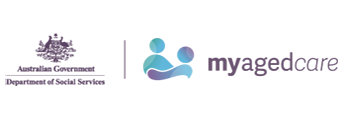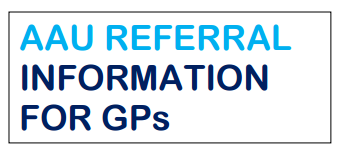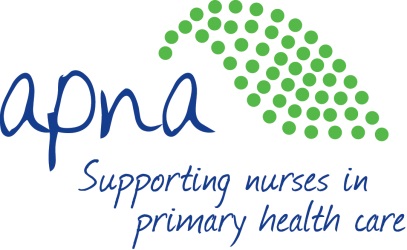GP News – Feb ’16
Pertussis notifications quadruple in two years
The pertussis outbreak, previously reported in December’s eNews, led to 2,356 whooping cough notifications in the Sydney north region in 2015, a 400 per cent increase since 2013.
According to the Communicable Disease unit at the Northern Sydney Local Health District: “The monthly count of pertussis cases appears to have peaked in November 2015 with the total number of cases in January 2016 being lower than both November and December last year. We expect the number of cases to continue to decrease.”
NSW Health has introduced an antenatal pertussis vaccination program to offer free Boostrix vaccine to all pregnant women in the third trimester (preferably at 28 weeks).
The free whooping cough vaccine during pregnancy is the best way to protect newborns from day one with studies showing that it is more than 90 per cent effective in preventing whooping cough in infants.
The advice from the Director of Communicable Diseases from Health Protection NSW around antibiotic recommendations and antenatal vaccination by GPs for pertussis remains in place.
CLICK HERE for the advice.

ACAT transitions to My Aged Care
GPs are advised that patient referrals to an Aged Care Assessment Team (ACAT) have now changed in NSW. As of February 4, referrals made by a GP to the ACAT need to be made through My Aged Care tel: 1800 200 422 or via the online referral form. The ACAT transition to My Aged Care means that all referrals for residential care, transition care and home care packages will be made through My Aged Care.
For more information go to: www.myagedcare.gov.au/service-providers.

Consumer Directed Care (CDC) and General Practice
Consumer Directed Care or CDC is the new buzz phrase in the sub-sidised government care of our elderly patients.
Once fully established, it will potentially place the GP/patient relationship in the centre of a range of care decisions and will present opportunities for practices that are pro-active and embrace these changes.
The intent of CDC is to put the control over how to spend government funds into the hands of patients, their family and carers. In other words: the consumer. This contrasts greatly with how the system has previously operated, where the money was placed in the control of homecare package providers. For years, these package providers have managed the money on behalf of the patient.
The inefficiencies in the system up to now have been widely recognised and it seems that the person who has lost out the most is the patient. Historically, significant amounts of government dollars have been consumed in wasteful administrative fees. Much of what is left goes to pay agency fees for care workers, and in many cases, those care workers are being billed out by the same ‘not for profits’ who are controlling the purse strings in the first place. GP’s have not had a significant role and have not historically been seen as a reference point in this care.
From 1st July 2015, new legislation came into play. This constitutes the first stage in handing the dollars, the control, the power and the choice to the consumer. The plan is that, by 2017, a mechanism will be in place that gives control of the dollars to the consumer.
From then on, service providers will vie with one another to entice the consumer. The idea being that the providers will innovate and offer services more relevant to consumers, the overall marketplace will become more efficient, fees for care services will be more competitive, and administration fees will be reduced – with the end result being that the vulnerable in our society will access more hours of care and services for the same government dollar.
As well as being of great benefit to the consumer, this presents a significant opportunity for GPs to play a greater and central role in the care choices that their elderly patients make.
During this current transitionary period, while moving toward full implementation of CDC in 2017, the home care package service providers still hold the funds and administer the package. But, following the changes that became effective as of 1 July 2015, package holders are obliged to provide consumers with wider choice, and a greater ability to direct how their package dollars are spent. They are also required to put much greater emphasis on wellness and reablement strategies into the services they offer.
So what does this mean right now for patients and their carers living at home and using government funded homecare packages?
Right now, it means that the consumer has more say in the kind of services they access, so they can get the greatest benefit from their package. For some it might mean more support in the home with domestic and personal care; for others, it might mean social outings, group exercise programs, or a walk on the beach; for another, a new wheelchair – whatever is appropriate to their individual needs, the consumer now has more influence over how their package dollar is spent.
They can also choose the service providers that are used. They can even outsource the case management role away from the package holder to specialist case management organisations who can advocate on their behalf to ensure they get the best value from their package.
Further changes will be implemented in 2017 and the consumer will be looking for guidance from a trusted source on how to access the best and most effective care.
The patient’s GP is especially well placed to fill that role. Forward looking GP clinics are already looking to partner with new organisations who understand CDC and who know how to make it work better for the consumer.
Article written by Brendan Browner from National Care Management.
Hepatitis B s100 Prescriber Course for GPs
A training course to accredit community-based GPs to prescribe hepatitis B s100 highly specialised drugs for the treatment of chronic hepatitis B is now being offered in Sydney on Saturday 5 March.
More than 220,000 Australians are living with chronic hepatitis B, with 3 of the 5 high prevalence areas in NSW. Only 5% of people who need antiviral treatment are receiving it and without access to appropriate care, around 15-25% of people will die from their condition.
As rates of hepatitis B increase over the next 10 years there is a need for GPs, particularly those with patients from priority populations e.g. CALD backgrounds or Aboriginal and Torres Strait Islander communities, to diagnose, treat and monitor chronic hepatitis B in the primary care setting.
Successful completion of the training and assessment will accredit community-based medical practitioners to prescribe s100 highly specialised drugs for the treatment of chronic hepatitis B.
CLICK HERE for information and how to register.

New report tells multiple medicine use can send old Australians into spiral of decline
A new research study, that examined the use of multiple medications or polypharmacy, has found that the simultaneous use of five or more medications can trigger a decline into frailty and death.
The research, led by Monash’s Centre for Medicine Use and Safety, in collaboration with the University of Sydney, followed the wellbeing of a cohort of community-dwelling men aged 70 years and over. Increases in the Drug Burden Index (DBI), which measures exposure to sedative and anticholinergic medications, were associated with a greater risk of mortality.
With nearly half of older people taking one or more unnecessary medications, understanding the health implications of polypharmacy is a vital step in the quest to improve health outcomes for the older community, and geriatric health management practices.
CLICK HERE for the Monash University research article
Community Resources
NPS Medicinewise supports a Living with Multiple Medicines project which shares the experiences of people that take five or more medicines. They share their personal stories on a wide range of topics including problems they have with their medications; storing medications; changing medications.
The information, including videos can help people understand more about multiple medicines use.
CLICK HERE for more information about the Living with Multiple Medicines project.
NSW Medicines Information Centre
The NSW Medicines Information Centre (MIC) provides healthcare practitioners with a rapid response to urgent enquiries as well as other information including:
- Evidence-based advice on therapeutic options
- Literature evaluation & retrieval
- Comprehensive database research
- Drug Information training*
The MIC is open 9am till 5pm Monday to Friday. Ph: 02 8382-3047
CLICK HERE for the NSW MIC flyer.

Immunisation Resources for Practices
Practices can now order all NSW Health’s publicly-available immunisation resources through the new combined immunisation order form.
Resources include:
- Pertussis
- Influenza vaccination in pregnancy
- Neonatal Hepatitis B
- Catch up schedule for 10 – 19 years
- Child care requirements
- Save the Date
- Translated material
There are no costs related to these resources.
CLICK HERE for the immunisation resources order form
Supporting Patients with Asthma
Health professionals can now refer patients with asthma to Asthma Foundation NSW for free telephone asthma education, resources and support.
Who can be referred?
All patients with asthma can be referred to this service, free of charge.
What will my patient receive?
A member of the Education Team will phone your patient to discuss their asthma and cover topics of identified need. These may include:
- What is asthma?
- Signs and symptoms
- Checking delivery device technique
- Asthma medications
- Interpreting asthma action plans
- How to tell if your asthma is worsening
- Asthma first aid
Your patient will also receive an Asthma Control Pack containing a selection of relevant information brochures and an Asthma First Aid fridge magnet.
An Asthma Education Summary of the initial phone conversation will be sent to you for review and inclusion in your patient’s medical record. If your patient cannot be contacted, you will receive notification.
Your patient will also be provided with the opportunity to be followed-up in six weeks’ time.
We will even record their Asthma Control Score for you during the initial phone call, and during their scheduled six week follow-up.
How to refer patients?
A referral form has been developed for this service, which can be returned to Asthma Foundation NSW via fax or email at ask@asthmafoundation.org.au.
Enquiries:
Please contact Robyn McKern on (02) 9018 0509 or rmckern@asthmafoundation.org.au
Department of Veterans’ Affairs GP survey
The Department of Veterans’ Affairs is seeking to understand the practice of general practitioners who work with veterans, in order to support them in providing veterans with best practice treatment for common mental health issues.
To support this work, an online GP survey has been developed requesting GP input on experience, knowledge and skills in using evidence-based practices for treating common mental health issues in the veteran population.
The survey is available from now until 10th March 2016.
CLICK HERE to complete the survey
GP Research: Knowledge of and Attitudes toward Anorexia Nervosa
A postgraduate medical student at the ANU School of Medicine is now inviting GPs in Sydney north region to participate in a 5-10 minute online survey that aims to investigate the knowledge of and attitudes toward Anorexia Nervosa (AN) among General Practitioners nationally.
The aim of the research is to improve understanding of the knowledge and attitudes GPs have about patients with AN in order to help identify the barriers for help-seeking behaviours.
CLICK HERE to read more about the research and to complete the survey.
Enquiries:
Michelle Genovas
E: u5598798@anu.edu.au

AAU for patients with complex medical issues in Sydney’s north
The Acute Assessment Unit (AAU) is a local hospital based service which provides patients and referring doctors with a medical service that eliminates long waits in the Emergency Department (ED).
The aim of the AAU is to deliver a multi-disciplinary, comprehensive care plan for patients with complex medical issues.
The Royal North Shore Hospital AAU welcomes direct GP referrals Monday to Friday, 8:00am – 5:00pm on (02) 9463 2272.
CLICK HERE for more information and how to refer

Enhanced Nurse Clinic Grants available
APNA is developing original models of clinical care delivered by nurses in primary health care settings. To assist in this development, APNA is currently offering a grants program for up to 10 sites nationally.
If a practice wishes to expand their nursing capacity, introduce a nursing clinic or has an idea for an innovative model to improve the care to the local population then an APNA nursing clinic grant may be able to assist.
Up to 10 sites will be selected Australia-wide, in metropolitan, rural and remote locations, based on local population health needs.
Expressions of interest for grants are open now. Providers from across primary health care, such as aged care, community health, correctional health and general practice, are invited to apply.
CLICK HERE for the EOI
[contentblock id=1 img=gcb.png]
